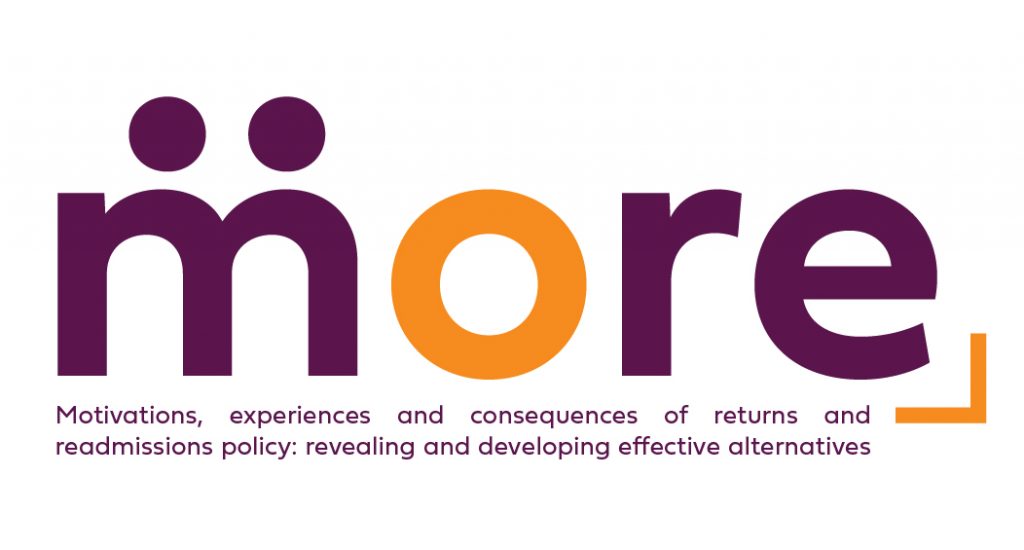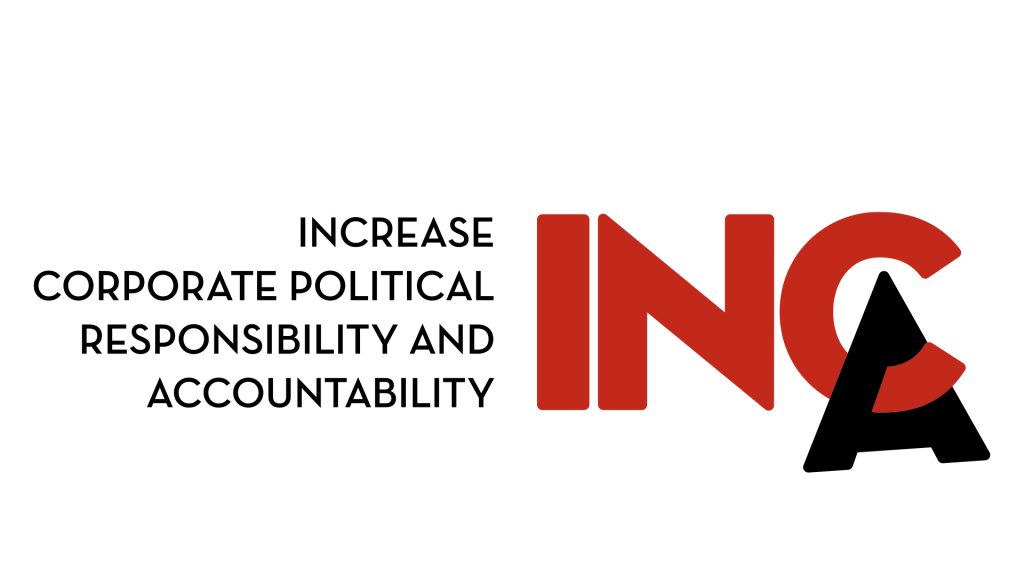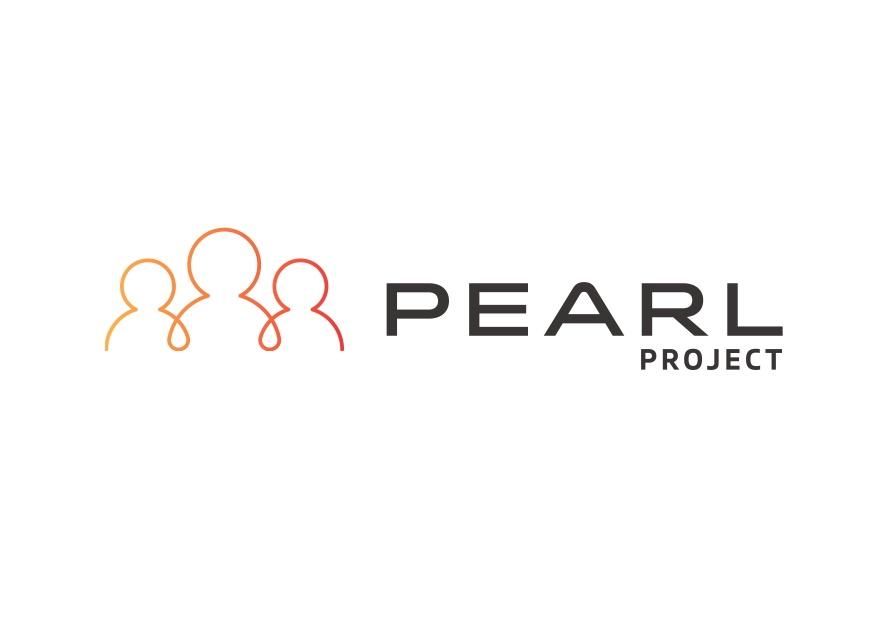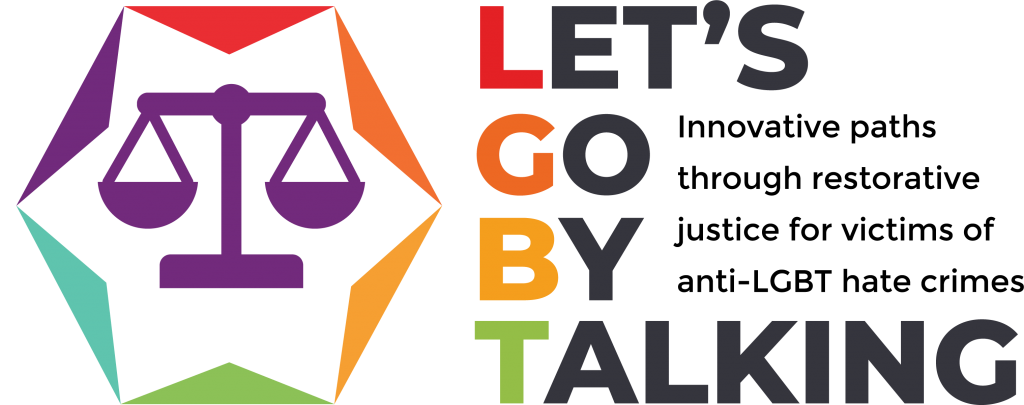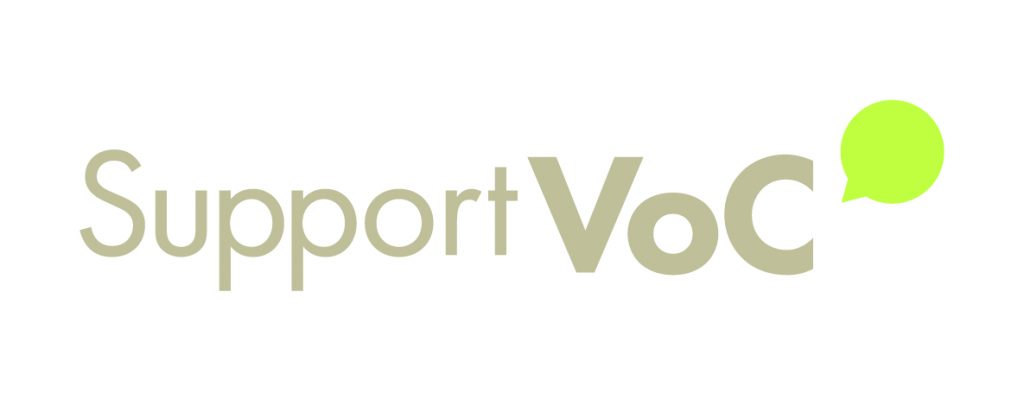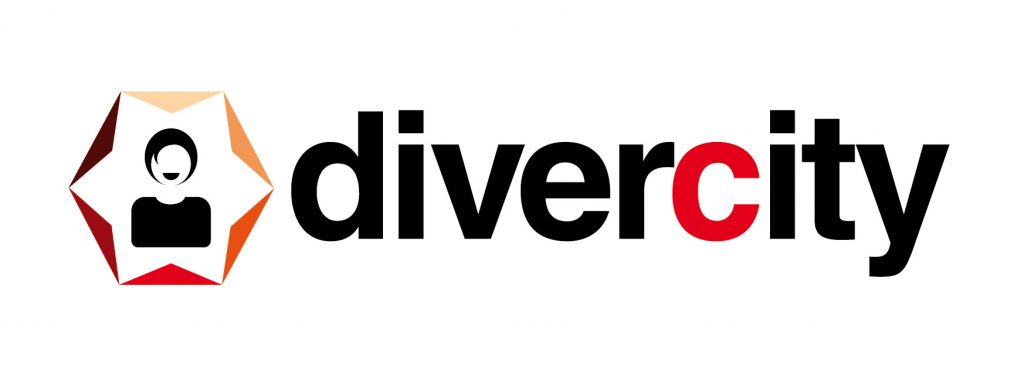Research Projects
Over the past decade ESRU has been involved in a variety of research and action-research projects both as coordinators and partners. Below you will find a list of our main current and past projects. For more details and explanations on each investigation, please click on a project.
Current Projects
MORE is a collaborative academic initiative that critically examines the Returns and Readmissions policy of the European Union and the United Kingdom. This policy has resulted in the narrowing of the pathways meant to safeguard the rights of migrated populations across Europe. The increasingly restrictive interpretations of the Returns Directive, coupled with intensified efforts to facilitate returns and deportations, have contributed to severe human rights violations. MORE analyses how the dynamics of the securitisation of borders, economic interests, and political imperatives have converged to promote and sustain returns policies. The research examines the consequences of these policies on the daily lives of irregularised migrants, their families, communities, and the European society at large. Moreover, it explores alternative approaches beyond return that tackle the structural causes of irregularity and provide dignified solutions.
The EXIT project, funded by the EU under the HorizonEurope programme and coordinated by the UB, aims to explore the manifestations, root causes and implications of socioeconomic inequalities within and between regions that are often referred to as left behind. The three-year project – involving seven universities and four civil society organizations from eight countries – will also propose ways to tackle such inequalities through a rigorous programme of cross-disciplinary and multi-actor research with communities on the ground. The project will explore, from an intersectional perspective, how inhabitants, institutions and organizations in these areas perceive, experience and counteract inequalities. The comprehensive programme of research and dissemination will enable knowledge sharing and best practice transfer between countries and communities in order to restrategise their sustainable development and enhance social inclusion.
INCA is an HorizonEurope project that investigates the impact that so-called digital platforms have on European democracies and institutions. Indeed, while promoting economic growth and labour transformations, these platforms pose challenges to policymakers and citizens in relation to people’ participation in decision-making processes, wealth inequalities and erosion of trust into public institutions. In particular, so-called GAFAM (Google, Amazon, Facebook, Apple and Microsoft) are becoming more and more infrastructures for opinion-making, labour organization and political debate. Their increasing power in shaping and influencing such issues through lobbying, industrial relations and cultural impact opened up a wide debate on the way to deal with these transformations. While European societies grew up based on liberal democracies and institutions with their capacity to sustain a coordinated market economy, today their role seems to be reduced because of the difficulties to regulate platforms’ corporate power that spread through politics, economy and culture.
PEARL is an Erasmus+ KA220 Youth project that aims to equip young migrants with the skills to use novel digital democracy tools to spearhead their democratic participation and increase the capacity of non-profit organisations and public authorities staff to promote migrant youth participation in decision making processes and democratic life. The project is coordinated by the organisation Agis, note et innove (FR)
Project Results:

COME-ON (2020-2023) is a national research Project coordinated by the ESRU and financed by the Proyectos I+D+i 2019 from the Spanish Ministerio de Ciencia, Innovación y Universidades. It is an interdisciplinary research Project that will use a mixed-methods approach to address gender-based online hate speech from an intersectional perspective.
Previous Projects
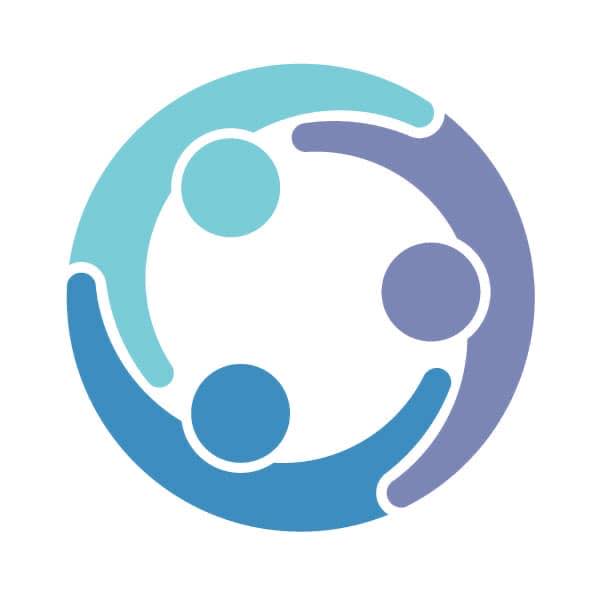
ERASMUS+ project (2020-2023) for the exchange of good restorative justice practices, with organisations from five European countries. It focuses on training and education, and it is related to the COME-ON and Let’sGoByTalking projects.
LetsGoByTalking (2020-2022) is a transnational action-research project coordinated by the ESRU and financed by the Justice Action Grant of the European Union. The project seeks to promote the restoration of hate crimes against LGBT population, enhancing the protection of victims’ rights through the analysis of the potentialities of implementation of restorative justice in these cases. The project is led by the Universitat de Barcelona with partners in research (Universitat de Girona, Universitat de Brescia, Universitat de Wroclaw,i Avans University of Applied Sciences), LGBT rights (Çavaria i Bilitis ) and restorative justice (European Forum for Restorative Justice) in various Member countries (Spain, Belgium, The Netherlands, Italy, Bulgaria and Poland).
PROJECT RESOURCES:
SupportVoC (2017-2019) is a transnational action and research project coordinated by the ESRU and funded by the Justice Action Grant of the EU. The project is aimed at promoting and protecting the rights of victims of crime through the analysis of the implementation of Directive 2012/29/EU and existing victim support services and the subsequent development of Standard Operating Procedures to promote an implementation of this Directive across the EU that addresses the needs of victims. The consortium includes research institutions, NGOs and other organisations in the field in Spain (Universitat de Barcelona), Greece (KMOP and National Centre for Social Solidarity), Cyprus ( “Hope For Children” CRC Policy Centre), Bulgaria (Animus Association Foundation) and Italy (Centro Studi E Iniziative Europeo).
REACT (2017-2019) is a transnational action and research project funded by the Rights, Equality and Citizenship Programme (REC) of the EU. The project is aimed at countering hate speech narratives on online media. The Consortium includes research organisations, public institutions and NGOs that bring their experience in working against hate speech from multiple perspectives from Italy (Associazione ARCI, Ufficio Nazionale Antidiscriminazioni Razziali and CITTALIA-Centro Europeo Di Studi E Richerche Per I Comuni E Le Citta-Fondazione Di Richerche Dell’Anci), France (La Ligue de l’Enseignement and Ligue française pour la défense des droits de l’Homme et du citoyen) Spain (Universitat de Barcelona, S.O.S Racismo Gipuzkoa and Universitat de Vic), United Kingdom (Race on the Agenda and Aik Saath) and Germany (AWO Arbeit & Qualifizierung GmbH Solingen)
DIVERCITY (2015-2017) is a transnational action and research project coordinated by the ESRU and funded by the Rights, Equality and Citizenship Programme (REC) of the EU. The project is aimed at making a diagnosis of the multiple dimensions of homo- and transphobia in small- and medium-sized cities across Europe, in order to share best practices and promote innovative measures to prevent and combat this social problem. The consortium includes research institutions, NGOs and city councils in Belgium (Université Libre de Bruxelles), Germany/EU-level (TransGender Europe), Greece (KMOP), Poland (University of Wroclaw), Spain (Universitat de Barcelona, Universitat de Girona, Ajuntament de Sabadell) and the UK (Middlesex University). The cities where the research and activities are implemented are Girona, Sabadell, Charleroi, Nottingham, Thessaloniki and Wroclaw.
This project was funded by the EC DG Justice and coordinated by the Italian organization ARCI. The project commenced in December 2014 lasted for 18 months, involving 11 institutions located in 5 European countries (Italy, France, Spain, Romania and UK) including research institutions, civil society organisations, and an Equality Body, as well as various associate partners from across Europe.
The PRISM project aimed at developing effective strategies for awareness raising, enhancing the need for denouncements and reporting, as well as for promoting a more conscious use of language, in order to reduce the use and impact of hate speech. The more specific objectives are: a) to raise awareness among both stakeholders and civil society about online hate speech, reducing the level of tolerance, b) to promote training for lawyers and law enforcement agencies in identifying, investigating and fighting hate speech and hate crimes increasing victim’s possibilities to apply to criminal and civil justice, c) to monitor online hate speech and increase data collection and reporting on the phenomenon, and d) to develop effective tools and redressing mechanisms for responding against online hate speech. For more details on the project please visit the PRISM website.
The CITISPYCE project is funded by the EC Seventh Framework Program and coordinated by Aston University. It brings together partners, including cities, academic institutions and NGOs, from ten European countries: Bulgaria, the Czech Republic, Germany, Greece, Italy, the Netherlands, Poland, Spain, Sweden and the UK. The ESRU is a full project partner and scientific coordinator in this 3-year project, which seeks to uncover innovative strategies for navigating, surviving and overcoming inequalities that have emerged, and are emerging, among young people in deprived parts of large cities through ethnographical research with young people themselves.
Having finished the fieldwork, we would like thank all the organisations, associations and institutions that have collaborated with the project providing information and enriching us with their knowledge and experiences: Casal dels Infants del Raval, Centros Materno-Infantiles of Cáritas, Joves TEB, Forn de teatre Pa’tothom, Social Services of Raval, Casal de Joves de la Prosperitat, Kasal de Joves de Roquetes, Ateneu Popular de Nou Barris, Can Batlló, Casal de Joves Palau Alòs, IES Miquel Tarradell,IES Roger de Flor, La Karpa, Energy Control, A Partir del Carrer and La Mula (masoveria urbana).
A new web has been designed in order to gather the voices of young people who have participated in Citispyce and to provide a platform for them to express their opinions and views about the project and current social and political affairs.
This 14-month project is coordinated by Associazione Arci in partnership with the Institute for International Legal Studies of the Italian Council of the Research, the Christian Associations of Italian Workers (ACLI) and the Patronato ACLI. The international partners which have given their adhesion to the project are the UB (through the ESRU), CBAI Centre Bruxellois d’Animation Interculturelle (Bruxelles, Belgium), University of Nanterre (France) and ACLI e.V. (Germany). The aim of the project is the transnational exchange of best practices focusing on experiences of policies and practices of integration of third country nationals, with the objective of transferring the best practices experienced in Italy, Germany, France, Spain and Belgium with regard to three specific sectors: access to services for job mobility, housing and social inclusion following family reunification.
Coordinated by the ESRU at international level, LinkAge is a research project designed to identify the dynamics, measures and activities advanced by trade unions and employers’ representatives towards the integration of vulnerable age groups (under 25s and over 55s) in the labour market. LinkAge is funded under DG Employment, Social Affairs, and Inclusion of the European Commission. The project has seven partners, including research institutions and trade unions, covering the countries of Austria, Belgium, Italy, Poland, Spain and the UK.
Coordinated by the ESRU at international level, TEAM is a research project designed to identify the dynamics, measures and activities advanced by trade unions towards the integration of migrant workers in the labour market. TEAM is funded under DG Employment, Social Affairs, and Equal Opportunities (2010-2012) of the EC. The project has eight partners, covering the countries of Austria, Belgium, Italy, the UK, Poland and Spain.
PROSINT is funded by EC- DG of Justice, Freedom and Security and coordinated by the International Centre for Migration Policy Development (ICMPD), Austria. The aim of the project is to assess the link between admission and integration policies, and the introduction of integration measures as a pre-entry or post-arrival mechanism (either compulsory or voluntary) for third country nationals. The ESRU is a full project partner forming part of a consortium of 8 countries: Austria, Czech Republic, Italy, the Netherlands, Spain, Sweden, Switzerland and the UK).
Funded by the EC’s Seventh Framework programme, the GendeRace project (2008-2010) was coordinated by the ESRU along with the Université Libré de Bruxelles. Involving six national teams, the objectives of the research were:
- To improve understanding of the impact of gender on the experience of racial discrimination;
- To improve the knowledge of the combined effects of racial and gender discrimination in order to reveal the various forms of specific discrimination that women experience;
- To deepen understanding of the impact of gender on the treatment of complaints;
- To improve knowledge of the motivations underlying the use of the law and of the expectations of the complainants;
- To test key theories concerning the effects of ground specific approach to antidiscrimination legislation on the treatment of double discrimination based on racism and gender;
- To develop practical tools to assess the effectiveness of policies and practices in the field of antidiscrimination in order to take into account the intersectional dimension.
(Study of the applicants register for subsidised housing in Barcelona)
This 2010 project, funded by the City Hall of Barcelona (Ajuntament de Barcelona, Consorci de l’Habitatge) provides the first empirical analysisand profiles of applicants for subsidised housing in Barcelona, in which data on over 20,000 applicants was assessed in order to provide recommendations towards more suitable housing.
(New Challenges and New proposals in the management of cultural diversity in companies based in Catalonia)
Conducted with the Centre of Initiatives and Studies on Citizenship (CIEC), this 2009 project analysed the role of companies and businesses towards migrant labour market integration in the frame of cultural diversity management and collective negotiation. The project was funded by the Council for Labour Relations on behalf of the Generalitat de Catalunya.
Other Collaborations
ESRU Director, Dr. Olga Jubany, was Coordinator of the Spanish team for the EC FP6 project Undocumented Workers Transitions, coordinated by the Working Lives Research Institute (WLRI), University of London, with partners in six countries. The project explored the factors underlying migration flows, focusing on undocumented and semi-documented migrant workers and their transitions between different countries, jobs and statuses.
Dr. Jubany was international project coordinator, and coordinator of the Spanish team for the project SMILING: Skilled Migrants and Labour Market Integration, a comparative four country research project funded by the Employment and Social Affairs DG of the European Commission. The project’s aims were to investigate the institutional and non-institutional factors preventing skilled migrant workers in four EU countries from accessing employment opportunities consistent with their skill/qualification levels.
She was national coordinator of the EC DAPHNE II project Domestic violence of immigrants, Dissemination of the “Break Through” method. This 2004 project set out to test the method and materials of the Break Through training programme in Catalonia, Spain and share it with other European countries. The programme aimed to provide self-help mechanisms to BME women and which also included a manual for professionals with new methods for breaking through cultural taboos. For more information, see the Daphne documentation.

